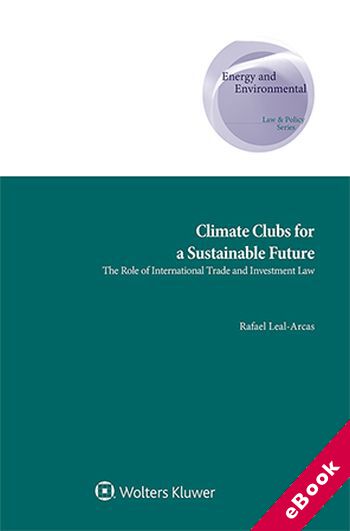We will be closed from 5pm Thursday 17th April for the Easter Bank Holidays, re-opening at 8.30am on Tuesday 22nd April. Any orders placed during this period will be processed when we re-open.

The device(s) you use to access the eBook content must be authorized with an Adobe ID before you download the product otherwise it will fail to register correctly.
For further information see https://www.wildy.com/ebook-formats
Once the order is confirmed an automated e-mail will be sent to you to allow you to download the eBook.
All eBooks are supplied firm sale and cannot be returned. If you believe there is a fault with your eBook then contact us on ebooks@wildy.com and we will help in resolving the issue. This does not affect your statutory rights.
Climate Clubs for a Sustainable Future, a revolutionary book by one of the world’s foremost authorities on international economic law, delves deep into the role of international trade and investment law and explains how free trade agreements and bilateral investment treaties can be used as a powerful tool to help alleviate climate change. The science, economics as well as the law of climate change are known to us. Nonetheless, what is not known to us is how countries may join hands to cooperate on climate change mitigation. In this vein, the role of international trade in climate change, although globally recognized, is not well understood.
Emphasizing the idea of climate clubs—namely the coalition of the willing—among governments, companies, and/or international institutions, the book provides a sagacious analysis of the following aspects of the trade–climate linkage:
This book contains three detailed case studies: a comparison of the U.S. and European Union (EU) Generalized System of Preferences programs, energy security in the Arab world, and EU–Russia energy trade relations.
Fortifying the author’s belief that global access to energy, mitigating climate change, and benefit from international trade and investment can all be achieved, this book furnishes a new perspective on the international trading system as a way to reach a prosperous, modern, and sustainable society that will help decarbonize the economy effectively. All professionals and policymakers concerned with climate change mitigation, and particularly those active at its nexus with international trade, will highly appreciate it.